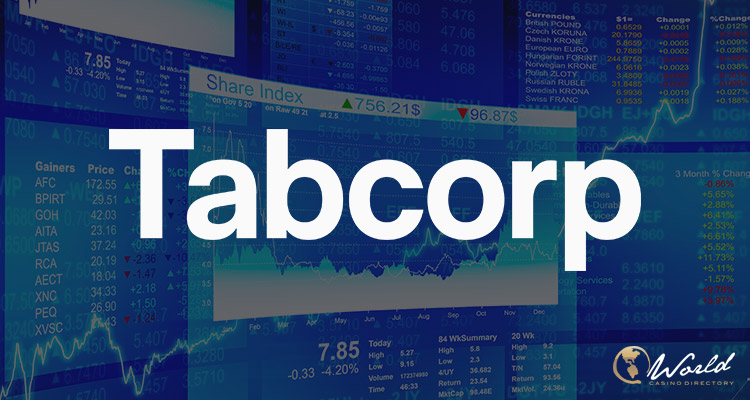Tabcorp, a flagship Australian gambling company/provider of betting and gaming products and services based in Melbourne, has faced its first-ever protest vote since the last came exactly five years ago, in 2018. Additionally, during this one, nearly 35% of shareholders had caste their votes against the remuneration report after criticism from 3 proxy counselors who claimed that the firm’s officials are overpaid.
Key finding:
Nearly 35% of shareholders officially voted against the remuneration report as mentioned above, which unveiled that Adam Rytenskild’s, aka a chief executive, salary of $2.07 million was bigger than the median earnings for the ASX 200 firm, regardless of the firm’s depletion in size since last year’s separation from The Lottery Corporation. Additionally, Rytenskild is entitled to a “short-term bonus,” which amount is between $1.5 million and $2.3 million, and the firm’s Board rewarded him with $1.14 million. However, half of this bonus was transferred to equity till 2025.
On a related note, Bruce Akhurst, chairman of Tabcorp, said to the shareholders during the firm’s 2023 yearly general meeting in Melbourne on October 25 that “the board was tasked with striking the balance between incentivising its leaders and shareholders.” Additionally, he added according to the Brisbane Times: “In determining remuneration outcomes for the year, the board has sought to balance financial and non-financial performance,” and his salary for the year was estimated at $493,300, “with non-executive directors at $160,000.”
However, if the aforementioned shareholders decide to go on a strike against the firm for the second consecutive year, during 2024, the Board will be obliged to take into account the spin-off proposal. In addition, going into a strike for companies like Tabcorp is when over 25% of shareholders officially vote against a proposal put forward by the company at their yearly general meeting.
Fallen income:
The firm’s income fell by over 6% during the first quarter of this year, with the main reason for this being enfeeble conditions of trading, according to a disclosure by Tabcorp. After that, its stake price also fell by 16% to close at 82¢ on October 25.
Following that revelation, similar information came from another giant Entain, a London-listed owner of Ladbrokes, which alerted that its gaming income was flat in the past quarter. In this regard, Tabcorp commented: “Our gaming services revenue was down by 13 per cent due to the sale of eBet in February and our wagering and media revenue had fallen by 5 per cent.”
Recommendations of proxy advisors:
Moreover, proxy counselors such as the Australian Shareholders Association, Ownership Matters and Institutional Shareholder Services, have suggested that the aforementioned shareholders vote against the firm’s intended board and executive remuneration. Also, Glass Lewis suggested that shareholders vote yes and stated that “the pay structure was understandable in the midst of a transition year.”
As for the Ownership Matters, it stated that “Tabcorp’s remuneration was more like that of an ASX 30 company, instead of the 145th in the ASX 300 bracket.” However, it added: “The executive remuneration structure was excessive given it missed key financial metrics, including earnings and net profit aims, over the year.”
Next up was the Australian Shareholders Association, which said that the remuneration plan had a number of flaws. In addition, it proposed that stakeholders vote against the reappointment of longtime director and president of the company’s remuneration committee, David Gallop. And finally, the Institutional Shareholder Services stated that Tabcorp had not “updated its pay structures” since the aforementioned separation process took place, which had a “market capitalization” of nearly $10 billion.
Still, remuneration was the only thing that get a vote of outcry, as every other proposal passed with over 97% of supporters, involving the re-election of Akhurst and the reappointment of Gallop and Karen Stocks, non-executive directors.



